In our work and daily lives, when we want to understand a new topic, the process is often filled with challenges. Many people even believe that the difficulties encountered in gathering information are no less than those of creating a document. This is because, in traditional information-gathering processes, we often face the following challenges:
- Information Overload: With an overwhelming amount of information, manually filtering out relevant and valuable content becomes exceptionally difficult, especially with the exponential growth of data in the AI era. Recent statistics show that 90% of the world's data was generated in the last two years.
- Flood of Misinformation: A study conducted in 2024 revealed that globally, about 60% of people (59%) are concerned about the authenticity and falsehood of online news content, particularly in the United States (72%) and the United Kingdom (70%).
- Limited Coverage: Traditional methods rely on personal cognition, and each person's cognitive boundaries directly affect the depth of information search, leading to an inability to comprehensively grasp multidimensional information.
- Uncertainty on Where to Start: Faced with many tools and topics, researchers often feel lost, unsure of where to begin, which may ultimately lead to abandonment of their search.
- Limitations of Traditional Tools: Traditional search engines rely on keyword matching, returning a large number of results that are often not highly relevant or repetitive. Users spend a lot of time filtering through these results, struggling to understand search intent, and they cannot provide personalized and semantically deep services.
- Language and Format Barriers: Due to cultural and language differences, many high-quality contents exist in various languages and unstructured formats, requiring significant time and effort for translation and organization.
These issues are like mountains blocking our path to understanding new things, lowering our conversion rate from "information" to "knowledge." Next, we will explore how YouMind can address these challenges:
1. Early Interpretation for Quick Understanding of Content
With the plugin provided by YouMind, when you browse a webpage, YouMind automatically analyzes the current page and outputs a visual structure. This allows you to quickly grasp the overall information structure and key points, saving time and effort while avoiding the troubles of information overload.
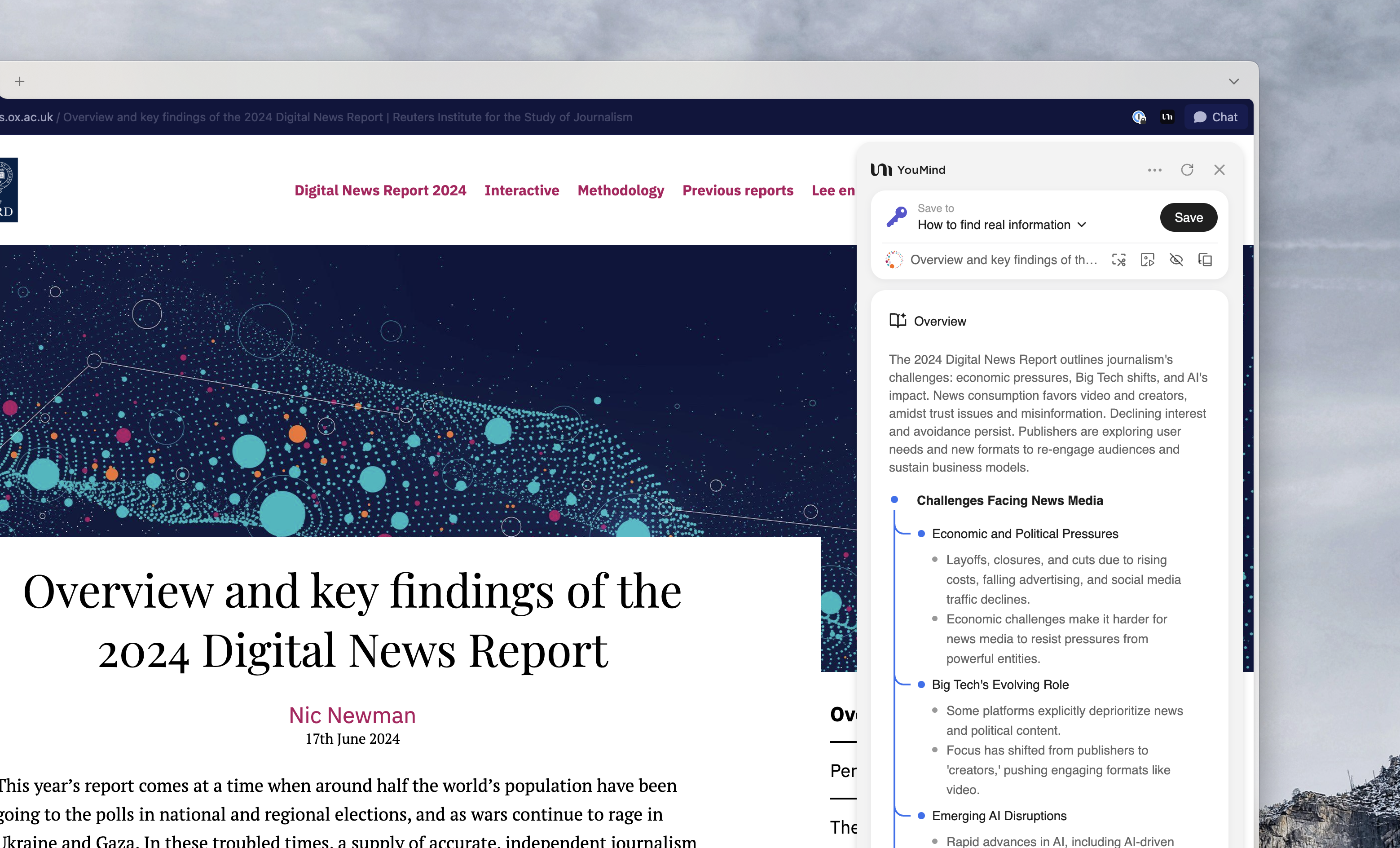
2. AI Dialogue for Intelligent Streamlining
When faced with lengthy texts, AI can help you accurately extract information through dialogue, speeding up your understanding. For example, when I'm writing a document and encounter data about misinformation, I want to confirm details further. AI excellently helps me pinpoint relevant content, significantly reducing confirmation time.
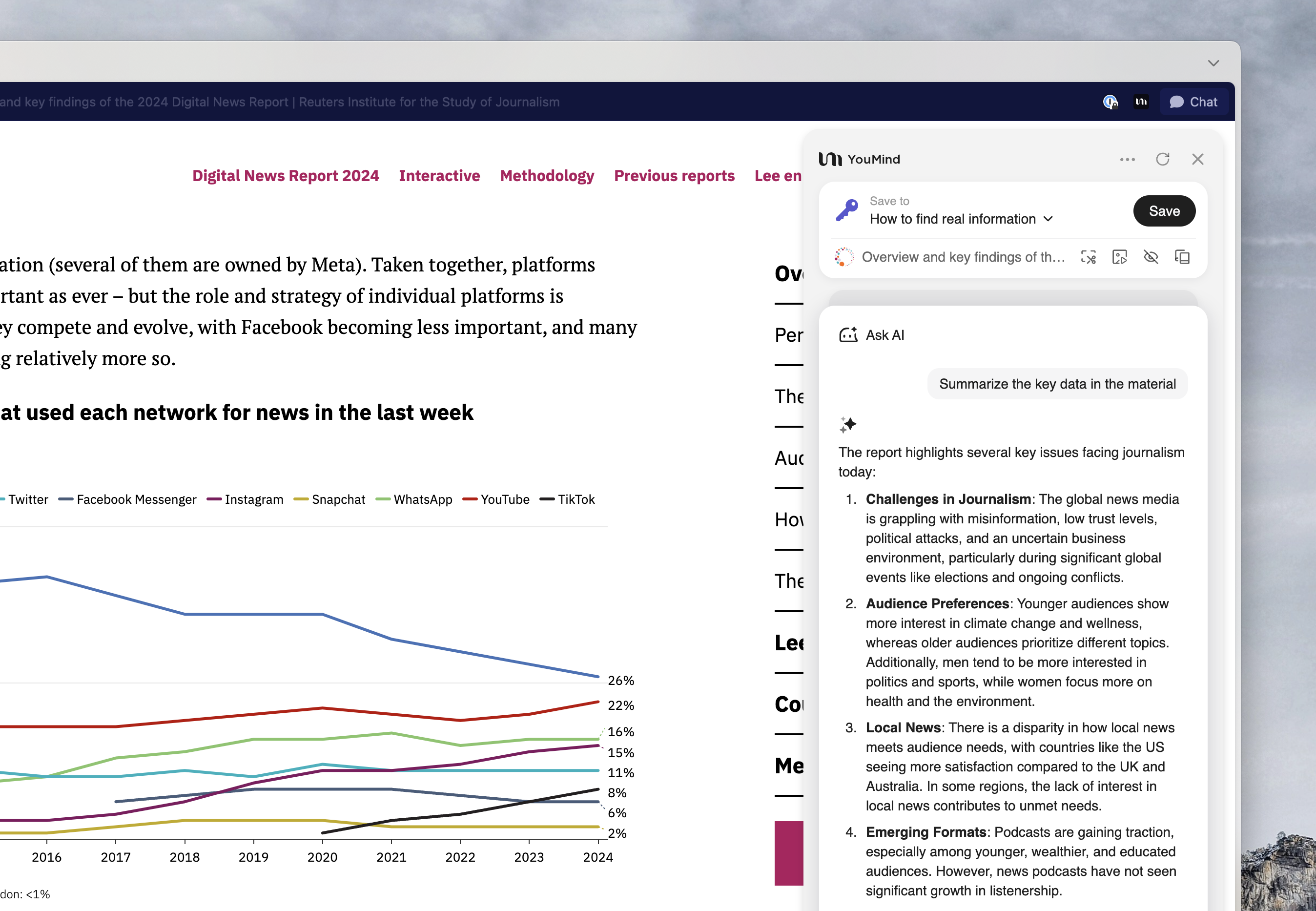
3. Save As You Go, Instantly Adding to Your Knowledge Base
If the content you browse meets your expectations, you can save it to YouMind with one click, creating a personal database. In this process, you can collect and organize information by topic, ultimately achieving thematic information creation and output.
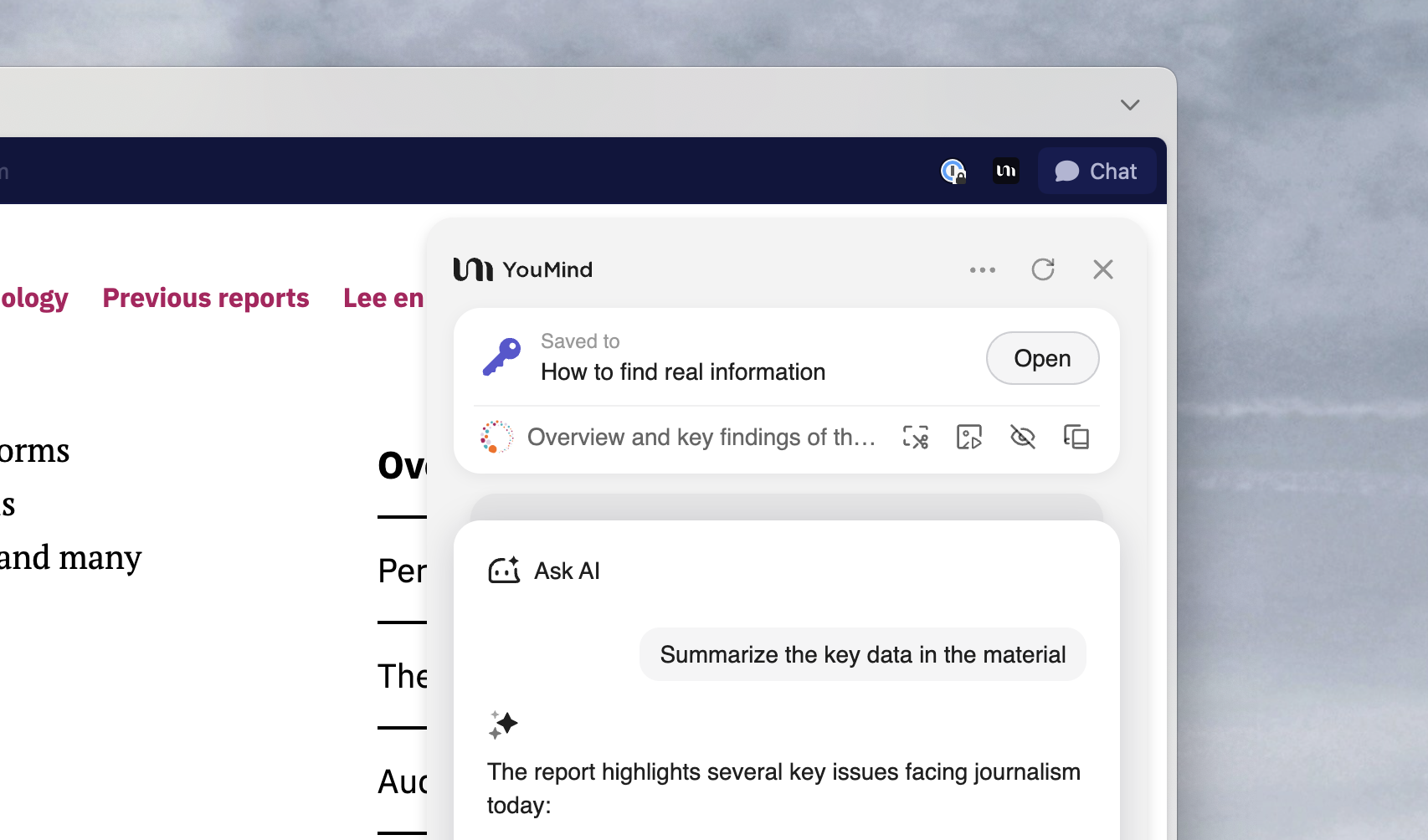
4. Intelligent Exploration for Faster Initiation
When you face a new topic and don't know how to start, YouMind's SaaS client offers a "New Board" feature. Just enter a general idea in the input box, and the AI will understand and break down your intent, automatically searching for relevant information and generating a summary report, allowing you to initiate research at a lower cost.
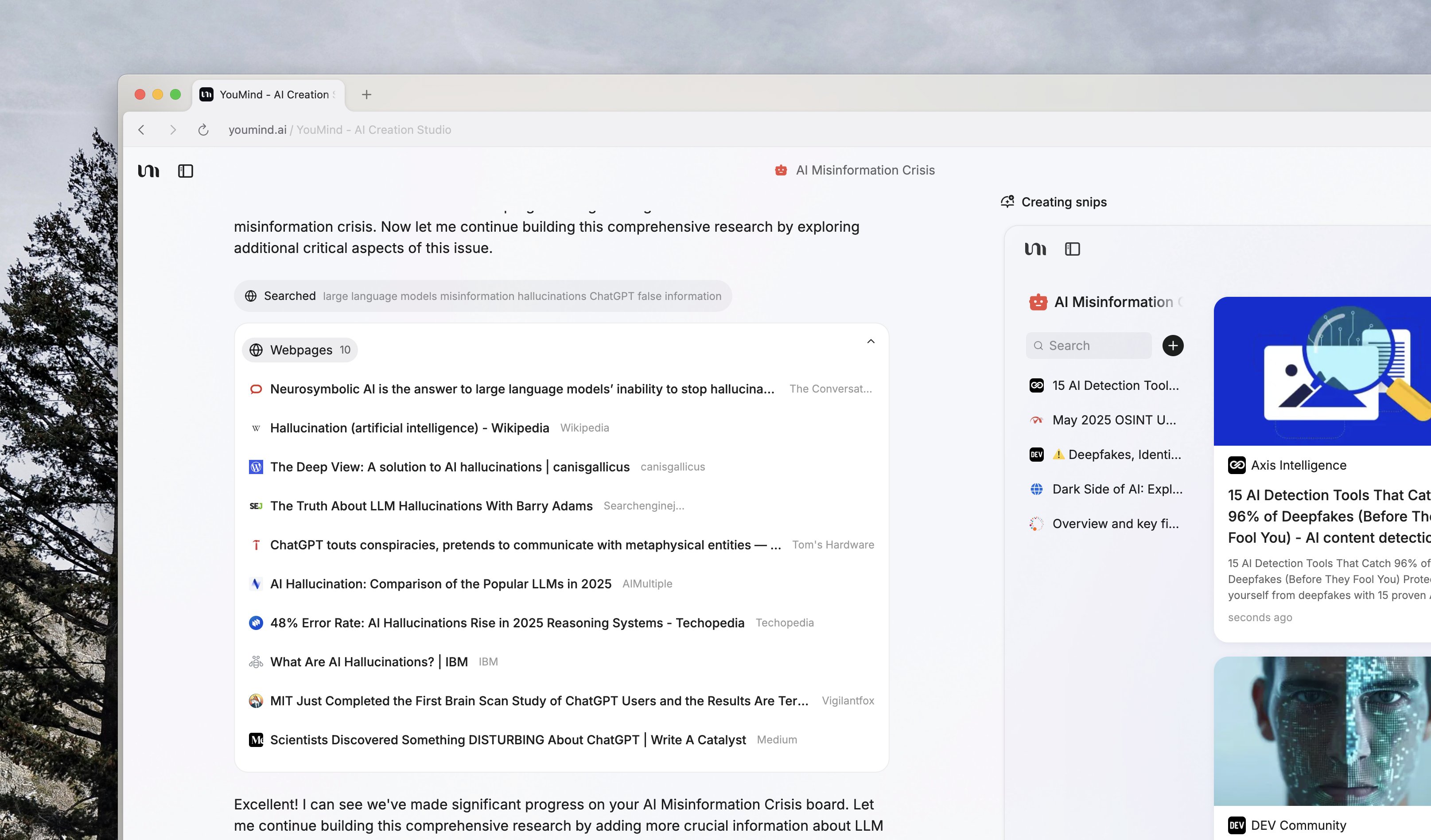
5. Information Processing to Transform Waste into Treasure
Once you import all content into YouMind and open your Board, you can adjust and reorganize the information. During this process, our Assistant continuously summarizes and extracts information, highlighting key points. This way, you not only complete the collection of thematic materials but also lay the foundation for creation and sharing. With YouMind, everything becomes so easy.
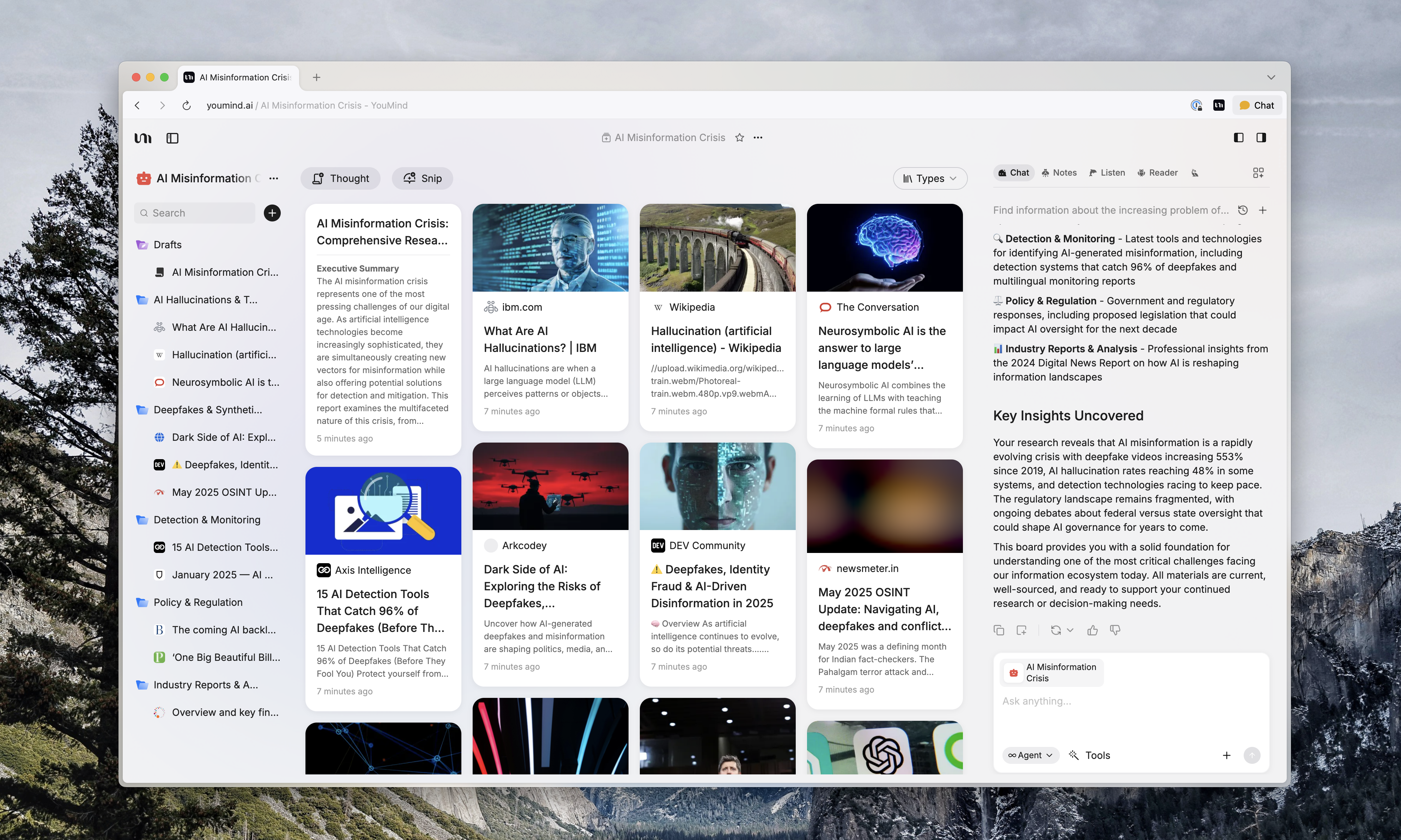
Of course, in the AI era, the challenges we face extend beyond just information acquisition and processing. While the capabilities of tools have improved, this also raises the bar for our ability to master new tools. We hope that through YouMind, users can have a simpler, more natural way to adapt to the changing times.
We also hope that with YouMind, every knowledge worker can better cope with the new era and find the most critical information amid the tide of AI and information, thus confidently facing new challenges.